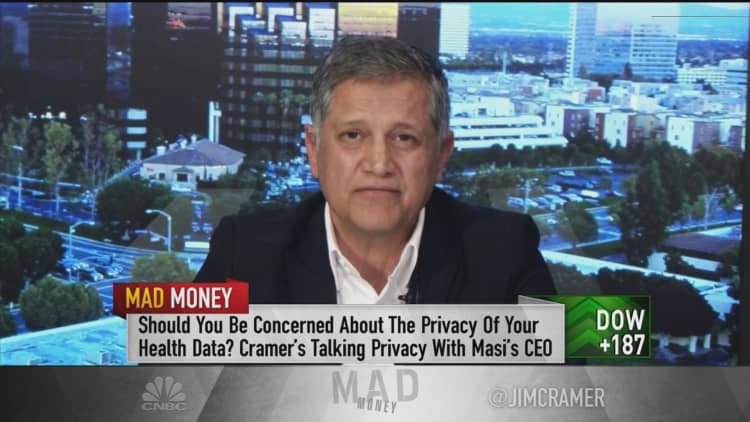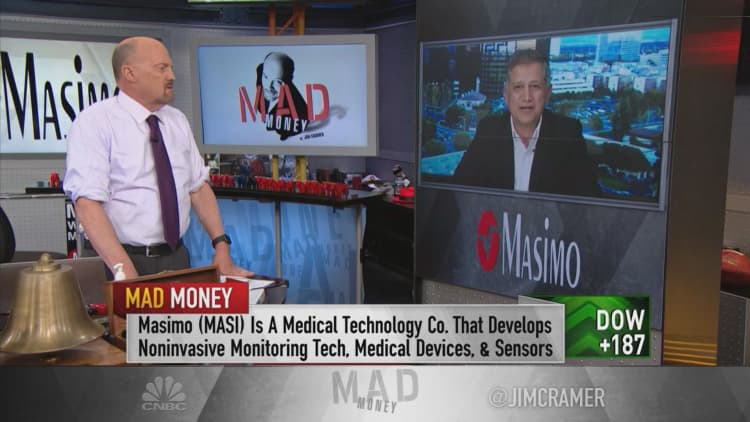
Patients should have more say in how they can easily access their medical information and how it is shared by hospitals, Joe Kiani, CEO of medical device manufacturer Masimo, told CNBC on Tuesday.
"Privacy rules are there to protect patients, not to potentially harm them," he told Jim Cramer in a "Mad Money" interview, reacting to a medical records company's pushback to new rules proposed by the Department of Health and Human Services.
"Patients should make the tradeoff between what's more important: privacy or having their data available in a way that can hopefully save their lives."
Epic Systems, the private health-care software firm pushing back on the rules, last week began lobbying U.S. hospitals to stand against the pending regulations that have divided patient advocates and some doctor groups. In an email addressed to some of the country's largest hospital systems, CEO Judy Faulkner urged top brass to sign on to a letter voicing disapproval of the rules, which were proposed in 2019.
The HHS rules intend to help patients access their medical information free of cost and limit companies' ability to block access to the records. Officials say the new regulation would help 125 million patients get access to their medical data this year.
Critics such as Faulkner are concerned that the rules don't do enough to protect patients' privacy and will create a way for app makers to access medical data without patient consent.
"That also unfortunately assumes that data privacy can't be kept. There's a lot of great companies that do a great job of making sure data can be transmitted in a way that keeps patients' data private and confidential," said Kiani, whose company produces noninvasive monitoring technologies.
Patient groups have said medical records vendors such as Epic and its top rival, Cerner, do not do enough to allow for the easy exchange of electronic health data. The companies have said they're making progress, though slow, toward fixing the problem.
While those opposing the new rules are concerned about privacy and HIPAA violations in a day where data is prone to being hacked, Kiani said the information can be shared among institutions without identifying the respective patients.
"We can get data from a hospital with a random number that's assigned to a patient and only the hospital has knowledge about who that number is associated with," he said. "So while you can hack into anything, it's like saying no one should own a phone or a computer because someone can hack into it. But there is protection, and what's more important is by sharing data patient's lives can be saved."
Epic Systems did not immediately respond to a request for comment from CNBC.
— CNBC's Christina Farr contributed to this report.

Questions for Cramer?
Call Cramer: 1-800-743-CNBC
Want to take a deep dive into Cramer's world? Hit him up!
Mad Money Twitter - Jim Cramer Twitter - Facebook - Instagram
Questions, comments, suggestions for the "Mad Money" website? madcap@cnbc.com



